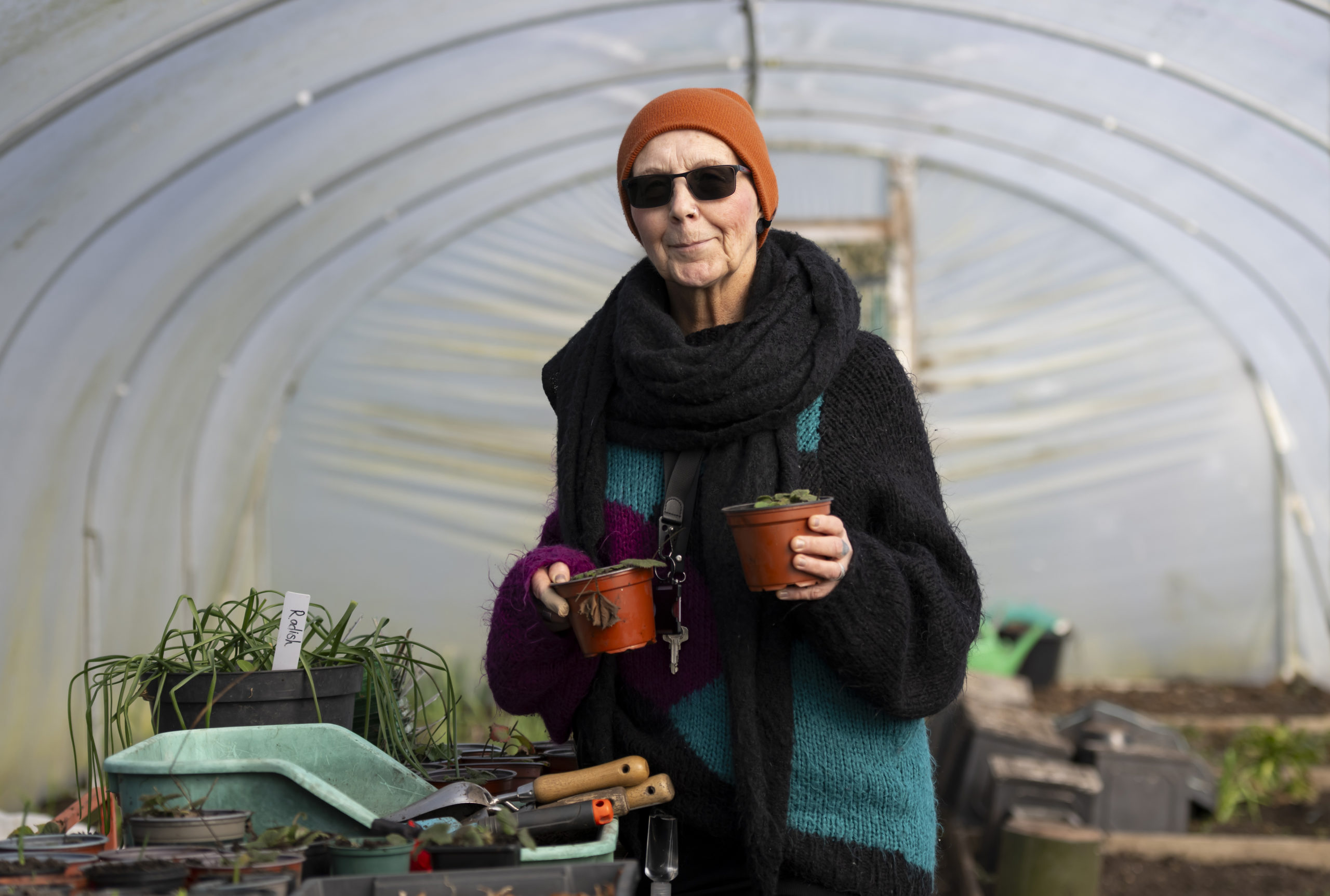
Al Lewis
Al Lewis loves working at LVS Hassocks, a nurturing and supportive learning environment, where every child is individually catered for. The dynamic teaching team, with its good mix of personalities and skills gels well together, says Al, adding: “Rachel is a very approachable and an amazing Principal. It makes such a difference to feel well supported in your job – and the students here are lovely to work with.”
Specialising in PSHE, Al spends three days a week with the students in the school’s spectacular horticulture area, a cultivated outdoor educational space, where children get hands-on experience.
“It has a magical feel about it and it is somewhere the children enjoy coming to. If they’re indoors and feeling dysregulated, getting outside and into the horticultural area gives them a chance to unwind and reset. We have guinea pigs, rabbits, chicken and ducks, and just being able to care for, and be with, the animals lowers their anxiety levels.
“We also grow a variety of vegetables, herbs and flowers and the children love the sensory aspect of working there. They get involved in every part of horticulture, from propagating the seeds, preparing the soil, to planting. Many of the children love to dig and it stimulates them,” says Al, explaining how the children also enjoy playing there, with the huge tractor tyres – where pumpkins and squash are grown – providing the perfect playground.
“We provide a stepping stone, preparing the students for when they will leave here.”
Students also have the opportunity to gain a BTEC Level 2 or ab ASDAN-accredited qualification in land-based studies – with ASDAN offering a more practical alternative to the more academic BTEC course.
PHSE lessons are very focused on providing the students with life skills – giving them a strong foundation to build upon, while also helping them to develop and improve their self-esteem and confidence. “We provide a stepping stone, preparing the students for when they will leave here. So many arrived having had their self-esteem and confidence knocked by, for instance, their experiences within mainstream education, but we help them rebuild that confidence by using tools that gently prepare them for moving back into a mainstream environment,” says Al.
Part of the next steps, especially as they reach Years 10-12 are the transition days, where students get to visit local colleges, with some choosing to have taster sessions in horticulture, blacksmithing and animal care. “It introduces the students to different environments, while also giving them a taster of the courses available at the colleges. Even things like experiencing the college’s canteen provides them with a new experience and is an all-important part of preparing them for their successful next step into further education.”